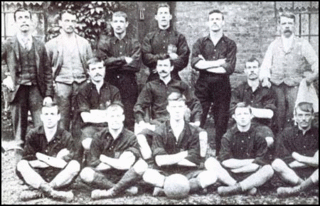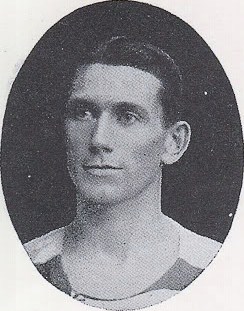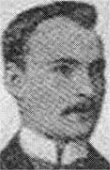Related Research Articles

West Ham United Football Club is an English professional football club based in Stratford, East London. They compete in the Premier League, the top tier of English football. The club play at the London Stadium, having moved from their former home the Boleyn Ground in 2016.

Arnold Frank Hills was an English businessman, sportsman, philanthropist, and promoter of vegetarianism.

The 1895–96 season was the inaugural season of Thames Ironworks, the club that would later become West Ham United. The club was founded by Dave Taylor and Arnold Hills in 1895 as the works team of the Thames Ironworks and Shipbuilding Company. Taylor was a foreman at the Ironworks and a local football referee. Thanks to Ironworks owner Arnold Hills' financial backing, he was able to announce on 29 June 1895 the following in the company's weekly journal:

Robert Stevenson was a Scottish footballer, a versatile full and half back who could also play at centre forward. He was the first captain of Thames Ironworks, who were later reformed as West Ham United.

Old Castle Swifts Football Club, the first professional football club in Essex, was formed by Scottish shipowner Donald Currie in September 1892 as Castle Swifts Football Club. The club's first home ground, located in West Ham, was named Dunottar Park, after the Castle Line company's ship Dunottar Castle. In 1894, Old Castle Swifts merged with Old St Luke's and was renamed. The club was wound up the following season. Its demise saw several players join the newly founded Thames Ironworks, the club that was later reformed as West Ham United.
George Sage was an English footballer who played as an outside or inside forward. He was amongst the first players of Thames Ironworks, the club that would later be reformed as West Ham United.
John Thomas Archer Wood was an English footballer who played right wing for Old Castle Swifts before joining Thames Ironworks, the team that became West Ham United, in their very first season of 1895–96. Woods is featured in Thames Ironworks' very first team photograph in 1895. John Woods was also the cousin of champion jockey Fred Archer.
James Lindsay was a footballer who played at inside-forward or centre-forward.
David Furnell was an English footballer whose position was goalkeeper.

The 1896–97 season was Thames Ironworks' second season after the club's formation in 1895.
Edward Hatton, also known as E. G. Hatton, was a footballer who played centre forward for Reading F.C. and Thames Ironworks, the team that eventually became West Ham United. He joined Thames Ironworks in 1896, scoring a brace on his debut in a 3-1 win in a London League fixture against Vampires F.C.
Thames Ironworks Football Club, the club that later became West Ham United, was founded by Thames Ironworks and Shipbuilding Co. Ltd owner Arnold Hills and foreman Dave Taylor in 1895. Thames Ironworks took over the tenancy of The Old Castle Swifts' Hermit Road ground in Canning Town until their eventual eviction in October 1896. They would briefly play at Browning Road in East Ham, before moving to the Memorial Grounds, a stadium which was situated close to where West Ham station now stands. The ground was built at Arnold Hills' own expense, costing £20,000.
George Gresham was a footballer who played as an inside forward.

The 1898–99 season was Thames Ironworks' fourth season after the club's formation in 1895.
The 1899–1900 season was the last for Thames Ironworks before the club folded to be reformed as West Ham United.
Hermit Road was a stadium located in Canning Town in London, England. It was the first home ground of football club Thames Ironworks, the works team of the Thames Ironworks and Shipbuilding Company. The club would later be reformed as West Ham United.

Billy Barnes was a professional footballer from West Ham, Essex. Originally debuting for Thames Ironworks, he moved to Sheffield United and scored the winning goal in the 1902 FA Cup final replay. Later on in his career he won two Southern Football League titles and took part in two Charity Shield matches including the first time it was held. Once his playing career was over, he went on to manage Athletic Bilbao in Spain.
Johnny Stewart was an English association footballer who played as a half back.

Henry Hird was an English association footballer who played as a winger.
The 1900–01 season was English football club West Ham United’s inaugural season. The club had been founded in 1895 under the name of Thames Ironworks, before being wound up in June 1900 and resigning from the Southern League. On 5 July, West Ham United Football Club Company Limited was registered and the club took the Southern League place vacated by Thames Ironworks. They finished the season sixth in the Southern League Division One. The club also entered the FA Cup, reaching the intermediate round.
References
- ↑ "The Memorial at Canning Town Station". www.canningtownlife.com. Retrieved 17 August 2015.
- ↑ Equivalent to £15 in today's pounds.